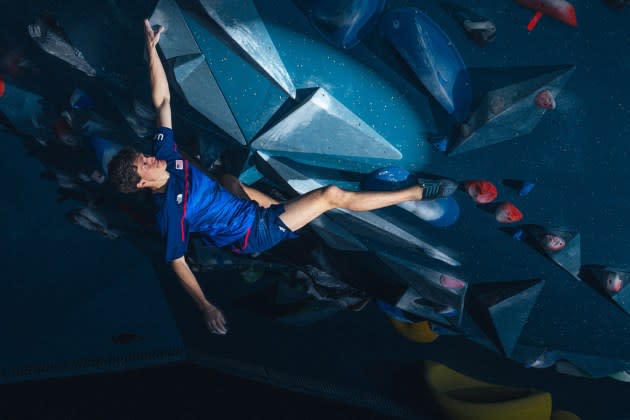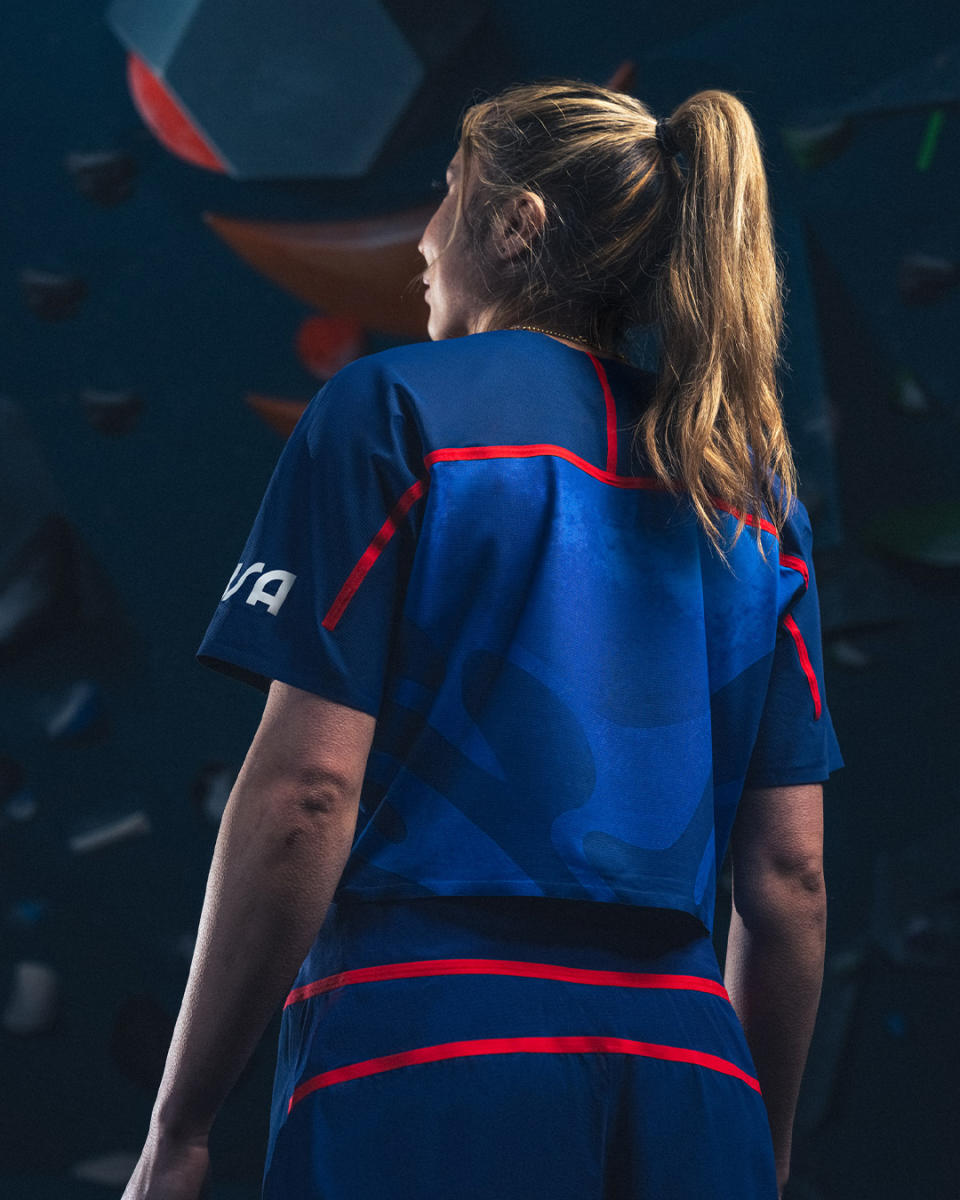Bold Graphics Mark The North Face’s Olympic Climbing Uniforms

From its company name to its longstanding mission, The North Face has long championed the sport-climbing community. So it’s no surprise that the company has created the official competition uniforms for athletes who will be participating in the upcoming Olympic Games for the second consecutive time.
The company was founded in 1966 as a climbing store and it long created climbing apparel for competitive athletes in the sport. Sport climbing made its debut in the 2020 Olympics in Tokyo, making this only the second time it will be appearing.
More from WWD
Nike Brings Brand Power to Paris Ahead of Olympics; Medalists Dawn Staley and Jordan Chiles Meet
Tom Brady, Eli Manning, Derek Jeter to Appear at First Fanatics Fan Festival in New York This Summer
The North Face will dress not only the U.S. team, but athletes from Japan, South Korea and Austria as well. It has also created a sport climbing competition kit for France, which had already committed to wearing different uniforms to fulfill sponsorship obligations.
In creating the uniforms, The North Face worked closely with a number of athletes, including Nathaniel Coleman, Melina Costanza and Nina Williams on the design and construction, according to lead designer Patrick O’Sullivan. Patternmaking was analyzed with 3D software, and garments were fit on climbing walls using the athletes as testers.

Visually, the uniforms draw inspiration from the highest peak in each country: Mount Denali in the U.S., Mount Grossglockner in Austria, Mount Fuji in Japan and the Hallasan Volcano in South Korea.
O’Sullivan said there were several “driving pillars” when designing the uniforms: a bold graphic approach inspired by a deep dive of Olympians of the past in other sports such as the Grateful Dead-designed T-shirts worn by Lithuania’s men’s basketball team at the 1992 Barcelona Olympics.
“In speaking with the athletes,” he said, “they said they just want to look good.” He said the eye-popping patterns on the uniforms resulted in the athletes’ desire to be “super expressive in the way they style themselves.”
There are 12 silhouettes in all, ranging from cropped T-shirts and tight shorts to rugby shirts that are “so prevalent in the climb space,” O’Sullivan said. Oversize T-shirts and baggy shorts are also available.
“If you look at climbers when they’re training, they wear oversize fits,” he said. “The roomy looks are built with the highest mobility standards, but we also have skin-tight options, which are more traditional.”
All of the pieces have external taping rather than internal construction to guard against chafing. “Most seam construction is on the inside, but we moved ours to outside,” he said.
The silhouettes for each country are the same, it’s only the graphics that change.
A selection of pieces from the kits will be available for consumers to purchase beginning July 1. That will include men’s and women’s competition shorts, T-shirts and tank tops. Prices will range from $80 to $145.
Sport climbing is a modern sport that has become immensely popular over the past 20 years. There are more than 25 million climbers in 150 countries all over the world, and 39 percent of climbers are under 18 years old, according to the U.S. Olympic Committee.
Best of WWD

